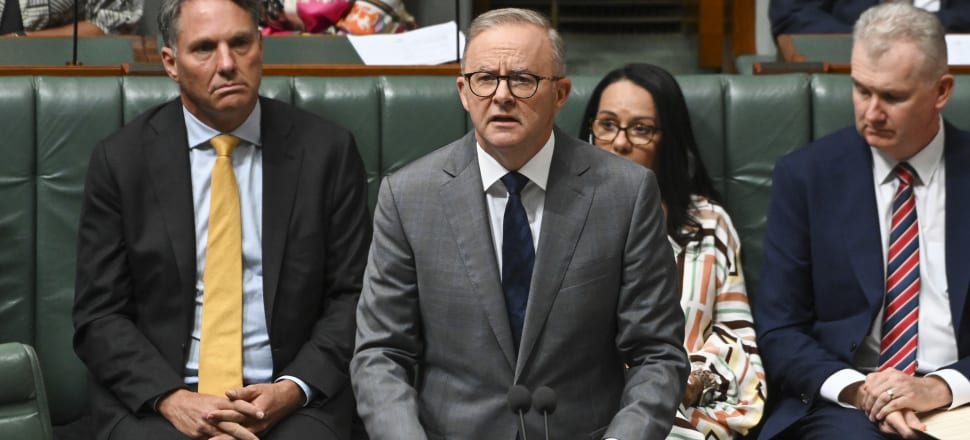
How long will it be until a New Zealand PM makes the same bold statement the Australian PM has just made about gender pay gaps?
Opinion: “Women should be paid the same as men. It's as simple as that. But right now, there’s not enough transparency around the gender pay gap in workplaces. That’s why we’re introducing a bill to fix that.”
In February, Australian Prime Minister Anthony Albanese made this bold statement as he introduced a bill into the Australian Parliament that will require all employers with more than 100 staff to report their gender pay gap by 2024.
READ MORE:
* Why are we still waiting for equal pay after 50 years?
* It’s time we all stepped up against unjust pay gaps
* New Zealand companies reveal all on gender pay gap register
While our government has talked about it, the Australians are acting, leaving me asking how long the wait will be until a New Zealand Prime Minister makes the same statement in our House.
We have prided ourselves across this side of the ditch on our human rights record, how seriously we take equity and how fair we are.
We often looked over the Tasman with a sense of smugness at how advanced we were.
But in terms of pay transparency and addressing pay gaps, the Aussies have thrashed us.
It was the unequivocal leadership from Albanese that impressed me.
As employees, potential employees, customers, and investors, we need this information to make informed decisions. Pay gap data tells us who gets recruited, promoted, and rewarded (and who doesn’t) in an organisation.
It didn’t impress everyone. A look through the comments on his Linkedin post announcing the bill shows that some punters aren’t happy.
In the comment section, one says to another: reading these should be fun, grab some popcorn and settle in for a good laugh.
And they were right. The predictable range of ‘pay gap myths’ were showcased:
'Women choose to get paid less.’ Any wage gap, some argue, is because of the career and lifestyle choices of women raising kids and working part time (ignoring research that shows when different occupation, education levels, work history, and ‘lifestyle choices’ are considered, women are still paid less).
‘There is no such thing as a pay gap.’ Some state there are no pay gaps because there is a law against it. Only a politician could think that businesses don’t pay the same, said another. Many men said they had never seen any pay discrepancies so they cannot exist or are just a statistical anomaly. The vast volume of empirical data on pay gaps means these statements are like the next wave of climate-change deniers.
‘This is discriminating against men.’ Women should only get paid the same if they can do the heavy lifting and working at extreme heights that men do, said one. If women are paid the same as men, one wants the salary of his female CE. Many comments focused on what men might lose if women were paid equally [ignoring that millions of women contribute to household incomes and millions of men will benefit from their wages increasing].
‘Denial by details.’ Many commentators wanted detailed proof there were pay gaps, and lots of ifs and buts.
Through all the comments, however, no one was denying that all should be paid fairly and that pay should not be based on gender, ethnicity, or any other personal characteristics.
That’s why pay transparency is so important. As employees, potential employees, customers, and investors, we need this information to make informed decisions. Pay gap data tells us who gets recruited, promoted, and rewarded (and who doesn’t) in an organisation.
The Australian government gets that. Australians, as a result, will be able to make better informed employment, purchasing and investment decisions next year.
Fair dinkum, it's about time we can too. Mate.







